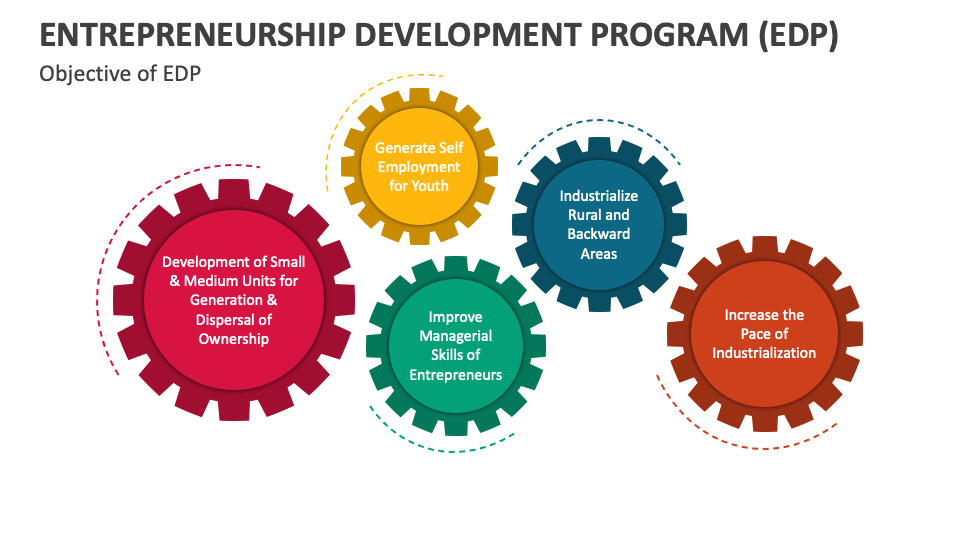Entrepreneurship Development Programs (EDP)¶
Entrepreneurship Development Programs (EDP) are structured training programs designed to help potential entrepreneurs establish and run successful businesses. These programs aim to equip participants with the necessary skills, knowledge, and mindset required to identify opportunities, start a venture, and sustain it successfully. EDPs are crucial in fostering an entrepreneurial culture, promoting innovation, and stimulating economic growth.

Objectives of EDP¶
1. Knowledge and Skills Development: To provide aspiring entrepreneurs with the knowledge and skills needed to start and manage a business. 2. Motivation: To motivate participants by instilling confidence and a positive attitude towards entrepreneurship. 3. Business Plan Creation: To assist in the development of viable business plans that can attract investment. 4. Networking: To facilitate networking opportunities with fellow entrepreneurs, mentors, and investors.
Key Components of EDP¶
- Entrepreneurial Mindset: Focusing on developing an entrepreneurial attitude, creativity, and the ability to take calculated risks.
- Business Management: Covering aspects such as business planning, financial management, marketing strategies, and operations management.
- Legal and Regulatory Framework: Providing knowledge about the legal and regulatory environment affecting businesses.
- Market Research: Teaching methods for conducting market research to identify business opportunities and understand customer needs.
- Resource Mobilization: Guidance on mobilizing financial and non-financial resources, including information on accessing credit facilities.
Implementation¶
EDPs are typically offered by a variety of institutions, including:
- Government Agencies: Such as the Small Industries Development Bank of India (SIDBI), National Institute for Entrepreneurship and Small Business Development (NIESBUD), and others.
- Educational Institutions: Many universities and colleges offer EDPs as part of their curriculum or as standalone programs.
- Non-Governmental Organizations (NGOs): Various NGOs conduct EDPs focusing on specific sectors or target groups.
Importance of EDP¶
- Economic Development: By fostering entrepreneurship, EDPs contribute to job creation, innovation, and economic diversification.
- Social Impact: EDPs can empower underrepresented groups, including women and rural populations, by providing them with the tools to become economically independent.
- Sustainability: They promote sustainable business practices and innovation, contributing to environmental conservation and social well-being.
Challenges¶
- Accessibility: Ensuring that EDPs are accessible to all, especially in remote areas.
- Customization: Adapting programs to meet the specific needs of diverse groups and sectors.
- Impact Measurement: Effectively measuring the long-term impact of EDPs on participants and the broader economy.
EDPs play a vital role in nurturing the entrepreneurial ecosystem by providing aspiring entrepreneurs with the skills and knowledge needed to launch and grow their businesses. As economies evolve, the continuous enhancement of EDPs will be crucial for fostering a vibrant entrepreneurial culture.